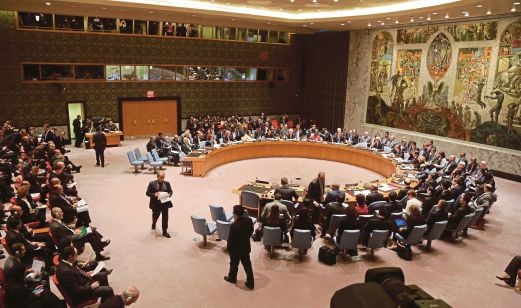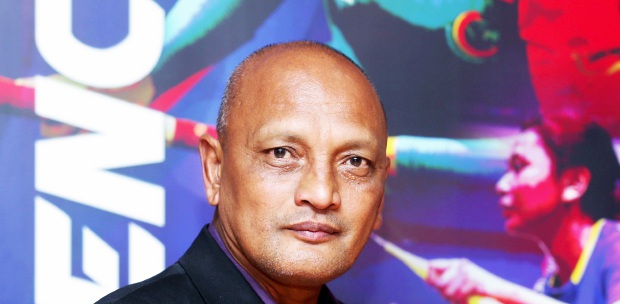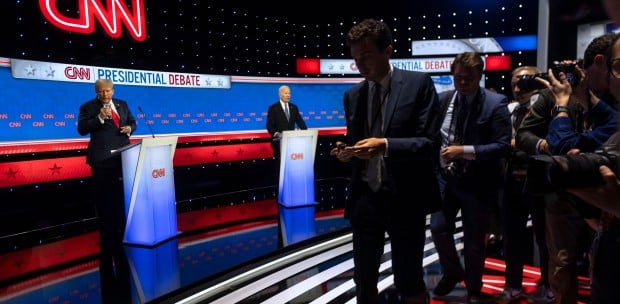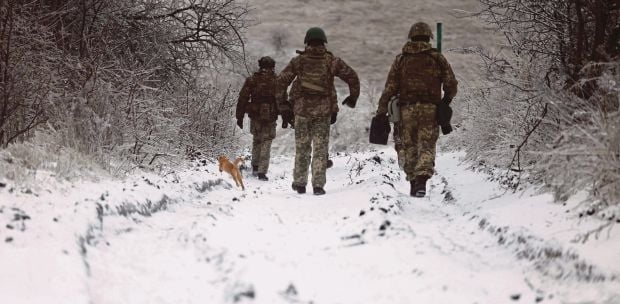THE Dutch Safety Board, on Sept 9, released their preliminary finding on the tragedy that befell Malaysia Airlines flight MH17. Working under an agenda item established in April year to discuss the matter of Ukraine, the Russian Federation quickly despatched a letter to the United Nations secretary-general, requesting an emergency Security Council briefing and discussion on the Safety Board’s report. The request, given the board’s preliminary findings, should not have surprised anyone, but at least one Security Council delegate was quoted as expressing his puzzlement as to why Russia would call for the briefing.
The answer was obvious. Russia, on the receiving end of Western media criticisms regarding Moscow’s involvement in Donetsk, wanted its chance to be heard on the world stage. After all, the English reports were sympathetic to Ukraine while vilifying Russian President Vladimir Putin — why shouldn’t Russia also be heard in this war of words? And where better to be heard than at the UN’s Security Council, where each and every argument and justification is not only webcast around the world, but also painstakingly transcribed, for posterity.
And so it was that on that Friday morning, Sept 19, Malaysian Foreign Affairs Minister Datuk Seri Anifah Aman found himself at the Security Council, perhaps the lone voice of reason amid the war of words at the horseshoe desk. Malaysia’s statement was obviously carefully crafted so as to ensure that Malaysia showed no partiality in the crossfire between Kiev, Moscow and Washington.
In the two-page statement, the foreign affairs minister used “downed”, or a deviation of it, a total of five times, not once deviating from the consensus language used in Resolution 2166 (2014). Malaysia was clear — this was not the time for the country to be a pawn in the clash between the superpowers.
If the Great Powers wanted to spew rhetoric and level charges against each other, then they were welcome to do so. Malaysia had other, more important business at hand: the retrieval of all human remains and the unfettered investigation on a crash site that, unfortunately, lay in a conflict zone.
Malaysia’s level-headed statement did not stop the blame game from being played out in the Security Council, however, as allegations swirled fast and furious as to what were these “high-energy objects that pierced the aircraft from the outside”, and who could have been behind these objects’ trajectory.
No one in the council could have been more eloquent, or more stirring than the United States ambassador to the UN, Samantha Power, as she spoke of the atrocity that Moscow’s intervention had wrought. Sitting in the president’s seat that morning as she presided over the proceedings, Power is indeed a worthy spokesman for the subject. After all, who better than an award-winning writer on genocide and a staunch believer in intervention?
Over on the other end of the spectrum was Ukrainian ambassador Yuriy Sergeyev, whose throat-clearing antics coincided with every sentence that either damned Moscow or held Russia accountable for the trouble in eastern Ukraine.
Whether he was nervous about “stepping over that line” when diplomatic niceties give way to name-calling, or was unsure about what he was meant to say, the end result was that he sounded like a second secretary told to just read the script. He could have learnt a lot from how then US secretary of state Colin Powell addressed the council in 2003, when he insisted that Saddam Hussein possessed weapons of mass destruction and was about to unleash it upon the world.
And the recipient of all these harsh words? Suffice to say that Vitaly Churkin is a person with whom you would not want to play poker. His calmness knew no bounds, even when the US charged that Russia’s words had no credibility within the council.
What of the other players at the council table? From their statements, it was clear who thought what, in the words they used: “shot down” (Rwanda), “missile” (Jordan), “surface-to-air missiles” (the United Kingdom), as well as compliments to Ukraine (Republic of Korea, Lithuania, France, Luxembourg and Australia).
There were also those who were clearly in Russia’s camp, calling for more autonomy to Lugansk and Donetsk (Chad), or an ambivalent China, Nigeria, Chile and Argentina.
All 15 of the UN Security Council members weighed in on the issue, but only three of them spoke along the same lines as Malaysia — that the perpetrators must be held to account and that justice must be done. This was not a game to be played, not when the lives of 298 people have been lost.
The Security Council has done it again. Once more, it has lost sight of the important issue.





